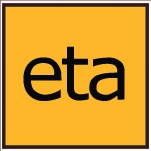A key element of the Department of Labor, the Employment and Training Administration (ETA) promotes job-training initiatives and programs across the country. ETA’s largest task is to distribute funding that helps Americans receive employment training, either as first-time workers or those transitioning into new lines of work as a result of job displacement. One such program advocated by the Bush administration resulted in ETA distributing millions of dollars in grants without competition or oversight by labor officials, resulting in criticism from Congress and government auditors.
The Labor Department in the Carter Administration
- Division of Policy, Legislation and Regulations (DPLR) develops policy recommendations on new and existing legislation for workforce investment system programs. It also coordinates the development, publication and implementation of new federal regulations affecting job training. In addition, DPLR produces research, demonstration and evaluation reports. DPLR performs all of its functions through the Policy Initiatives, Legislative Activities, Regulatory Activities, and ETA Advisories sections.
- Division of Research and Evaluations operates pilot projects and conducts applied research for experiments aimed at developing new knowledge in the field of employment and training. This division includes the ETA Research Publication Database and information on Research, Demonstration, and Evaluation Projects. Other information can be found in the National Agricultural Workers Survey, which provides demographic and employment characteristics of the US crop labor force, as well as on ETA’s Five-Year Research Plans and Operating Plans.
|
California Employment Development Dept.
|
$5,168,648,720
|
|
Texas Workforce Commission
|
$3,126,711,399
|
|
New York State Dept of Labor
|
$2,972,613,298
|
|
Illinois Dept of Employment Security
|
$1,625,017,955
|
|
New Jersey Dept of Labor
|
$1,459,874,764
|
|
Pennsylvania Office of Employment Security
|
$1,435,054,177
|
|
Washington Employment Security Dept.
|
$1,428,709,061
|
|
Louisiana Dept of Employment & Training
|
$1,078,982,274
|
|
Georgia Dept of Labor
|
$1,048,732,698
|
|
Right to Employment Administration
|
$1,007,920,507
|
Examples of smaller recipients, all of whom were beneficiaries under the High Growth Job Training Initiative, are National Retail, Downriver, Good Samaritan, Shoreline, Maryland Department of Labor, Manufacturing Institute, Service Employees International Union, Hispanic Chamber of Commerce, Career Firms and Brevard. These recipients were studied by the Labor Department’s Inspector General as part of a
(PDF) of ETA’s grant giving (see Controversies).
Inspector General Report, April 2008
(PDF)
Emily DeRocco To Head National Center For The American Workforce (Manufacturing.net)
- Table of Contents
- Overview
- History
- What it Does
- Where Does the Money Go
- Controversies
- Suggested Reforms
- Comments
- Leave a comment


On December 12, 2013, President Barack Obama nominated Portia Y. Wu to be assistant secretary of Labor for the Employment and Training Administration (ETA). This agency administers job-training initiatives, including paying for training for first-time workers or retraining for those seeking new skills because of job displacement. Wu was confirmed by the Senate April 2, 2014.
Wu was born July 23, 1970, in New Haven, Connecticut, to An-Ya Shih Wu and Tom Wu, both of whom were physicians. Both of her parents spent most of their careers working at the Veterans’ Administration hospital in Albany, New York.
Portia Wu grew up in Delmar, New York, winning a $300 first-prize in a piano competition when she was in 10th grade. Wu graduated from Bethlehem Central High School in 1987. She went on to Yale, from where she graduated in 1991 with a B.A. Wu then went to Cornell, where she received an M.A. in comparative literature in 1993. She then returned to New Haven for law school, receiving her J.D. from Yale in 1998.
Wu clerked until 1999 for Judge Richard Paez, then serving on the bench of the U.S. District Court for the Central District of California. Later, while on the Ninth Circuit Court of Appeals, Paez wrote the opinion blocking many of the provisions of Arizona’s anti-immigrant SB 1070 law.
After her clerkship, Wu went into the private sector, working as an associate in the law firm of Bredhoff & Kaiser until 2003. Wu then took a post as a Congressional staffer, working for the Senate Health, Education, Labor, and Pensions Committee and its chairman, Sen. Edward M. Kennedy (D-Massachusetts), and later Sen. Tom Harkin (D-Iowa). She served as labor and pensions counsel, chief labor and pensions counsel and labor policy director and general counsel during her tenure, which ended in 2010.

Jane Oates, President Obama’s choice to head the Employment and Training Administration, was confirmed by the Senate on June 12, 2009. She began her career as a special education teacher, and once helped advise the company behind the controversial Channel One program, before serving as a top aide on Capitol Hill and to the governor of New Jersey.
- Latest News
- D.C. Public Schools will Teach all Second-Graders to Ride a Bike
- New Rule in Germany Limits Sales of Sex-Themed E-Books to 10pm to 6am
- What Happened to the 6-Year-Old Tibetan Boy the Chinese Government Kidnapped 20 Years Ago?
- U.S. Ambassador to Turkey Photoshops his Hair Color to Mock Turkish Mayor
- Mystery Artist Calls Attention to Unfixed Potholes by Drawing Penises around Them
A key element of the Department of Labor, the Employment and Training Administration (ETA) promotes job-training initiatives and programs across the country. ETA’s largest task is to distribute funding that helps Americans receive employment training, either as first-time workers or those transitioning into new lines of work as a result of job displacement. One such program advocated by the Bush administration resulted in ETA distributing millions of dollars in grants without competition or oversight by labor officials, resulting in criticism from Congress and government auditors.
The Labor Department in the Carter Administration
- Division of Policy, Legislation and Regulations (DPLR) develops policy recommendations on new and existing legislation for workforce investment system programs. It also coordinates the development, publication and implementation of new federal regulations affecting job training. In addition, DPLR produces research, demonstration and evaluation reports. DPLR performs all of its functions through the Policy Initiatives, Legislative Activities, Regulatory Activities, and ETA Advisories sections.
- Division of Research and Evaluations operates pilot projects and conducts applied research for experiments aimed at developing new knowledge in the field of employment and training. This division includes the ETA Research Publication Database and information on Research, Demonstration, and Evaluation Projects. Other information can be found in the National Agricultural Workers Survey, which provides demographic and employment characteristics of the US crop labor force, as well as on ETA’s Five-Year Research Plans and Operating Plans.
|
California Employment Development Dept.
|
$5,168,648,720
|
|
Texas Workforce Commission
|
$3,126,711,399
|
|
New York State Dept of Labor
|
$2,972,613,298
|
|
Illinois Dept of Employment Security
|
$1,625,017,955
|
|
New Jersey Dept of Labor
|
$1,459,874,764
|
|
Pennsylvania Office of Employment Security
|
$1,435,054,177
|
|
Washington Employment Security Dept.
|
$1,428,709,061
|
|
Louisiana Dept of Employment & Training
|
$1,078,982,274
|
|
Georgia Dept of Labor
|
$1,048,732,698
|
|
Right to Employment Administration
|
$1,007,920,507
|
Examples of smaller recipients, all of whom were beneficiaries under the High Growth Job Training Initiative, are National Retail, Downriver, Good Samaritan, Shoreline, Maryland Department of Labor, Manufacturing Institute, Service Employees International Union, Hispanic Chamber of Commerce, Career Firms and Brevard. These recipients were studied by the Labor Department’s Inspector General as part of a
(PDF) of ETA’s grant giving (see Controversies).
Inspector General Report, April 2008
(PDF)
Emily DeRocco To Head National Center For The American Workforce (Manufacturing.net)
Comments


On December 12, 2013, President Barack Obama nominated Portia Y. Wu to be assistant secretary of Labor for the Employment and Training Administration (ETA). This agency administers job-training initiatives, including paying for training for first-time workers or retraining for those seeking new skills because of job displacement. Wu was confirmed by the Senate April 2, 2014.
Wu was born July 23, 1970, in New Haven, Connecticut, to An-Ya Shih Wu and Tom Wu, both of whom were physicians. Both of her parents spent most of their careers working at the Veterans’ Administration hospital in Albany, New York.
Portia Wu grew up in Delmar, New York, winning a $300 first-prize in a piano competition when she was in 10th grade. Wu graduated from Bethlehem Central High School in 1987. She went on to Yale, from where she graduated in 1991 with a B.A. Wu then went to Cornell, where she received an M.A. in comparative literature in 1993. She then returned to New Haven for law school, receiving her J.D. from Yale in 1998.
Wu clerked until 1999 for Judge Richard Paez, then serving on the bench of the U.S. District Court for the Central District of California. Later, while on the Ninth Circuit Court of Appeals, Paez wrote the opinion blocking many of the provisions of Arizona’s anti-immigrant SB 1070 law.
After her clerkship, Wu went into the private sector, working as an associate in the law firm of Bredhoff & Kaiser until 2003. Wu then took a post as a Congressional staffer, working for the Senate Health, Education, Labor, and Pensions Committee and its chairman, Sen. Edward M. Kennedy (D-Massachusetts), and later Sen. Tom Harkin (D-Iowa). She served as labor and pensions counsel, chief labor and pensions counsel and labor policy director and general counsel during her tenure, which ended in 2010.

Jane Oates, President Obama’s choice to head the Employment and Training Administration, was confirmed by the Senate on June 12, 2009. She began her career as a special education teacher, and once helped advise the company behind the controversial Channel One program, before serving as a top aide on Capitol Hill and to the governor of New Jersey.
- Latest News
- D.C. Public Schools will Teach all Second-Graders to Ride a Bike
- New Rule in Germany Limits Sales of Sex-Themed E-Books to 10pm to 6am
- What Happened to the 6-Year-Old Tibetan Boy the Chinese Government Kidnapped 20 Years Ago?
- U.S. Ambassador to Turkey Photoshops his Hair Color to Mock Turkish Mayor
- Mystery Artist Calls Attention to Unfixed Potholes by Drawing Penises around Them





Comments